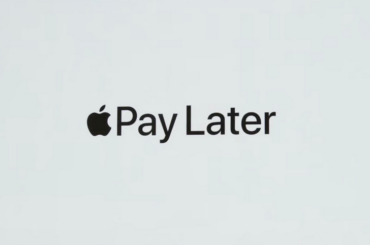An individuals credit score is central to a person’s life, it impacts everything from borrowing, to insurance to even lending a job. Don’t let a low credit score prevent you from getting the job you want. Learn how to increase your credit score with the 7 tips provided below.
Credit Scores are sort of a black box, many people don’t know why their credit score is at the level it is at or what makes up credit scores, which is frustrating. We get it.
Which is why we are here, to help explain complex credit information to people not experienced in dealing with credit agencies and their scoring formulas.
This article will briefly explain what Credit Scores are and provide you with 7 tips to increase your credit score and put you on the path of improving your financial being.
What is a Credit Score?
A credit score is a snapshot of your credit worthiness, how you manage your debt and how risky are you for a borrower. Its basically a score of your financial history. The credit scores are used to determine how much money to lend you and at what cost. The lower the credit score you have, the higher the risk you are for a borrower, the higher the interest rate you will pay to borrow money.
There are 3 main credit agencies, Experian, Equifax, and TransUnion. Each one has their own method and calculation for determining credit worthiness but overall, they take into account the same factors. Number of cards/loans outstanding, payment history, credit mix, length of credit history, new credit.
What Does Your Credit Score Consist Of?
- Thirty-five percent of your credit score consists of your expense history, indicating your loan expenditure as well as credit card payments.
- Thirty percent is allotted to the amounts due. This shows how much of your credit is used up. This is essential to know if you have overused or maxed out your credit card.
- Fifteen percent amounts to the duration of the credit card. It is considered to be beneficial to have a credit card for a lengthy period of time.
- Ten percent is allotted to the credit sources, so if you have more than one credit card or various bank financial records, they will be added to this category.
- The last ten percent is made up of all the latest credit transactions such as acquiring a new loan.
Provided below are 7 tips for increasing your credit score.

1 – Check your Credit Reports
Like anything in life, mistakes happen. Your credit history is not excluded. When we mean mistakes happen, we don’t mean you forgot to make a payment, no we mean that there is an outstanding debt attributed to you that isn’t yours, or you paid off a bill that is still showing as outstanding with a balance.
According to a Consumer Reports investigation, 34% of Americans found at least one error in their credit report. Errors in your credit history impact and can decrease your credit score.
Use your ability to get an annual free credit report to check for errors. If you do find issues in your credit history, you can contact the credit agencies and request the errors be removed.
Please note that depending on the issue, you will likely need to submit additional documentation and proof that the problem has been resolved and you may need to involve your lender in order to clean up any outstanding errors in your credit report.
2 – Make Payments on Time
Paying your bills on time may sound simple and easy but people get busy with their daily lives, and they forget to make a payment. Your payment history makes up 35% of your credit score, paying your bills on time will help Increase your credit score.
You can make sure your payments are made on time by enabling and setting up autopay at your lenders. Many lenders offer the option to make the minimum payment automatically. You should take advantage of those offers and enable autopay where your lender will take at least the minimum payment. Making payment on time will help with your payment history, it will also avoid the late fees associated with missed payments.
3 – Don’t Max out your credit cards
Credit utilization or how much your credit limit you are using determines 30% of your credit score. As you start reaching your credit limit, credit agencies will lower your credit score. They figure you are having a hard time making payments or if you run into financial problems you will have a hard time paying off your debt.
If you can avoid it, don’t make out your credit cards, which impacts your credit utilization.
4 – Request for Credit Line Increase
You can lower your credit utilization by either making larger payments or you can ask for your credit line to be increased. Obtaining a higher credit limit on your lines of credit and credit car while maintaining the same balance will decrease your credit utilization, which will help increasing your credit score.
5 – Ignore Credit Offers
If you have a decent credit score, you will be bombarded with offers for credit and loans. You don’t need to respond to them, you don’t need to apply for every credit card offer you get. In doing so you, you are taking a credit hit with every offer you apply.
Credit agencies penalize credit scores for hard credit pulls, which is what occurs when you apply for a new line of credit. Be selective with opening new lines of credit or applying for credit cards if you want to increase your credit score.
6 – Keep your credit lines open
If you paid off your credit card and are debating on closing the account, Don’t. Closing a credit line, will hurt your credit score in two ways. One is the credit history. The longer your accounts are open the more they help increase your credit score. The other is credit utilization, if you have a zero balance on your credit card, your overall credit utilization will decrease which also helps increase your credit score.
7 – Write a Goodwill Letter
Credit blemishes like missed payments will stay on your credit for 7 years, a good will letter is a letter written to your lender requesting that they remove late payments from your credit report. This method would be very effective in increasing your credit score if you have a missed payment that is 90 days or more. The longer the payment is missed the larger the impact it is on your credit score.
Conclusion
Your credit score plays an important role in your financial well-being, it determines the interest rate you pay and can even impact your ability to get a job. There are some simple ways you can increase your credit score such as enabling autopay offered by credit card companies, which helps with the payment history. You can keep your accounts open, even after paying them off which helps with the history of accounts. These simple and basic steps you can take to boost your credit score will go a long way and you’ll be happier for taking these steps.





